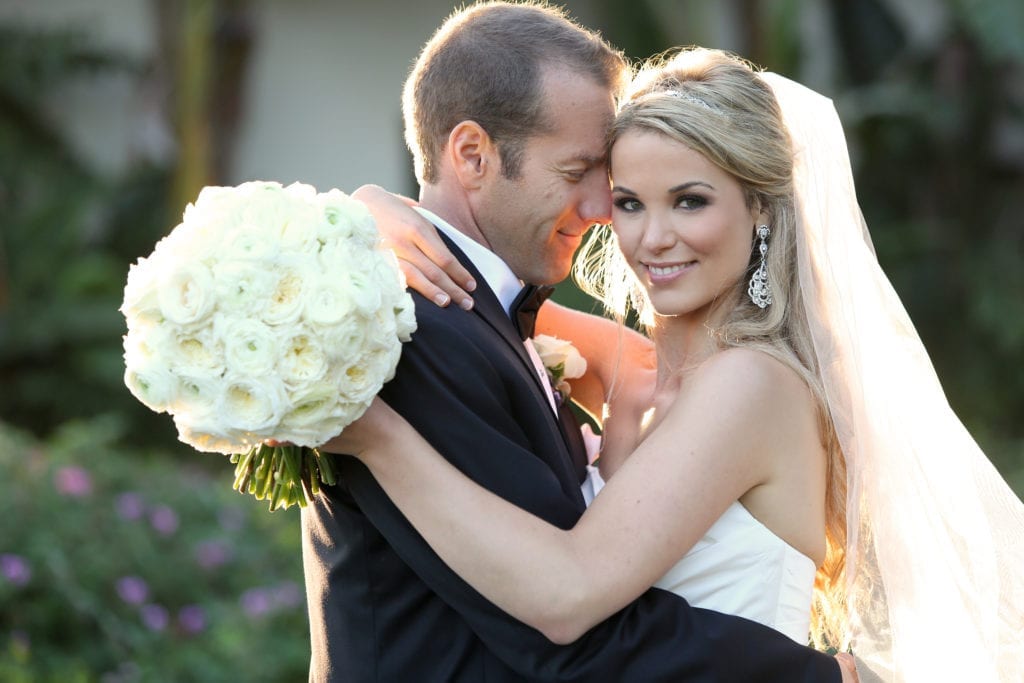Quick Answers:
Why Do I Hate My Husband?
This feeling is a signal that frustrations have been accumulating and you’re starting to react. It’s normal to feel like you can’t stand your partner when small annoyances pile up.
What To Do When You Hate Your Husband?
This is a multifaceted issue, but communication is where healing starts. Forgiveness and understanding on the part of both spouses, followed by professional help if needed can change these feelings.
What Are The Signs You Hate Your Husband?
Early symptoms that you’re starting to dislike your husband include eye rolling, small quips, avoiding time together, responding to your husband with irritation, and when spending time together feels like a chore.
About Kimberly Beam Holmes
Marriage Helper CEO
Kimberly Beam Holmes is passionate about saving marriages. A frequent speaker at women’s conferences and marriage events, she holds a master’s and Ph.D. in Psychology.
Why do I hate my husband?
If you are a woman out there and feel like you do not have those same feelings of love and affection as you used to have towards your husband, or you feel like you may resent or even say, “I hate my husband”; then this article is for you. I want to start by sharing a story with you of a couple that I knew and worked with a couple of years ago.
They were married for almost a decade by the time that problems began to arise. What happened in the first ten years of their marriage was that one of them was very controlling towards the other. And in this situation, it was the wife. But bear with me, hear me out. You’re going to learn valuable information from this.
For the first ten years of the marriage, the wife would always tell the husband what she wanted him to do and how she wanted him to do it. She would withhold giving intimacy from him until he would do what she wanted him to do. And it led to, as you can imagine, not a very happy or satisfying relationship. And actually, what happened was the husband began to shift his feelings from love and being accepted by his wife to resenting her.
Because you see, resentment at its core is when people feel that they have an unmet need or desire. Because of that unmet need or desire, it leads those feelings of positivity and warmness and comfort towards feelings of negativity. So you see, the interesting part about this story of husband and wife that I started with is that the wife, eventually, after her husband disconnected, began to realize what she had done that led him to disconnect and to pull away.

She decided that she needed to change.
So she started to do things differently and learn the things that we teach at Marriage Helper of how to stop pushing her husband away and how to begin to pull him back towards her. I’ll tell you more about that in a minute.
The husband at that time had become so hard-hearted that he had convinced himself, because of his resentment, that the way that he began to treat her was okay. He began to have affairs, which are never justified, but because of his feelings the first couple of years of their marriage, he was justifying his actions because of his resentment. This only made things worse. So the truth that I have for you today is when you choose to see your husband as the enemy or continue to hold the grudges inward and not deal with them, or you even begin to say something like I hate my husband, you can easily start to justify your behaviors and how you treat him, even when that will not be the best outcome for your marriage.
Now, I’m going to be telling you in just a minute how you can speak with someone at Marriage Helper and get a free marriage strategy session. But before I continue, let me introduce myself to you. My name is Kimberly Holmes, and I am the CEO of Marriage Helper. At Marriage Helper, the team that we have has been working with marriages for over 22 years. We have worked with thousands and thousands of people with an incredibly high success rate in helping to save marriages, even marriages that are on the brink of divorce.
We’ve even helped marriages in situations like yours, where you’re thinking, “How could I ever feel the love and compassion towards my husband when I hate my husband?” We have helped couples overcome that and learn to overcome the resentment and love each other again, even more than they loved each other on their wedding day.
I know that you want that for yourself, even if you don’t believe it can happen. So that is why we have a free marriage strategy call that you can have with someone on our team. Now in that call, which I will tell you more about how you can book at the end of this video, you’ll be able to speak with someone for free about your situation. They can guide you to the best resources at Marriage Helper to help you move forward in your marriage. But let’s go back to resentment for just a minute.
Recognizing When You Can’t Stand Your Husband
Sometimes you might catch yourself thinking, “I can’t stand my husband” or even muttering, “I hate my husband so much.” This doesn’t make you a bad spouse—rather, it’s a signal that frustrations have been accumulating and you’re starting to react. It’s perfectly normal to feel like you can’t stand your partner when small annoyances have piled up, and you may find yourself asking, “Why do I feel so unhappy with my husband?”
When your spouse constantly puts you down—whether through sarcastic comments or outright criticism—it chips away at your affection and can lead you to think, “I hate my spouse.” Before those thoughts turn into bitterness, press pause and ask what needs aren’t being met.
Signs You’re Starting to Dislike Your Partner
- You roll your eyes at topics you once loved discussing.
- You catch yourself saying, “I dislike my partner,” and avoid quality time together.
- You respond with irritation instead of curiosity when he shares his day.
- Routine moments—dinner, date night—feel more like chores than connection.
When you realize you feel resentment or even anger, that’s your cue to map out exactly why do I feel like I hate my husband and then address those root causes head-on.

The reason that resentment is so toxic for relationships is that it can be an apathetic feeling.
You see, you may say “I hate my husband”, but hate is a very emotive word. Hate is not the opposite of love, like many of us think. If we begin to break down hate, you can look at the hate in the same way that we look at the scientific definition of love.
Love has three components. There’s passion, there’s commitment, and there’s intimacy. Hate begins to happen when the passion part of love goes awry. So when we think of love, that passionate part of it is the one that can increase the quickest or decrease the fastest because it’s very much based on emotions, the feeling and desire for oneness. If you were to look at it on a scale, if the positive were to be passionate, when it gets below that line and goes negative, that’s what can become hate. It’s this feeling of passionate anger towards someone else. And it’s not the opposite of love; it’s just the opposite of passion at that moment. Or it could be said that it is a passionate form of anger that wants to have vengeance or wants to have revenge.
Apathy is the opposite of love. Apathy is the absence of feeling any intimacy, any commitment, or any passion towards your husband. And a lot of times, when we enter into that space of resentment, if we don’t fix that, we can easily become apathetic. That is when your marriage is in trouble. When you begin to have no more feelings towards your spouse, where you don’t care what happens to them, what they choose to do. You shut yourself off completely, and you’ve become numb. That is a huge issue.
You may be sitting here thinking, “well, I think that’s how my husband feels towards me.” I’m not here telling you that there’s no hope. There is hope, but the first step is being aware and realizing either where your emotions are or where your husband’s emotions are. If you feel like you have entered into a space of apathy, either you or your husband, then you don’t need to wait any longer to do something now.
What To Do When You Hate Your Husband? There Are Three Things:
First, suppose you say “I hate my husband” because you feel like you have unmet desires or needs that accumulated over time because your husband has not listened to you. Or maybe you’re sitting here thinking, “gosh, yes, I feel that way, but I think my husband feels that way too. Perhaps he has unmet desires or expectations that I have not helped fulfill in him.”
You see, the way this happens is because we don’t actually express what our desires or expectations are. And then, when they don’t get met, we begin to hold our spouse accountable for those things not being fulfilled, even though we never actually said that was what our need was in the first place.
My husband and I, especially in the first four or five years of our marriage, had many unmet expectations and desires or needs. But I also didn’t necessarily tell my husband I had them. In some previous YouTube videos, I’ve mentioned that the first thing that happened when my husband and I got married is we moved to Korea and lived there for the first two years of our marriage. During that time, I realized my husband was an extreme introvert, and I was an extrovert.
What he needed was when he got home from his crazy busy day being in the armed forces was time alone. But what I needed was a connection with him. I didn’t know how to say that to him at the time because I didn’t realize that was the need that I had. So instead, what ended up happening is I would end up pleading, begging, crying, or trying to push him to spend time with me, which ended up just pushing him further away. I had an unmet expectation of having family dinners, my husband spending time with me when he came home, traveling on weekends. These were my expectations because that is what I had growing up with my family. Still, I never expressed those to him, so I ended up getting frustrated at him, saying “I hate my husband” and resenting the situation we were in.
I ended up resenting him, thinking, “I hate my husband”, even though I didn’t give him a fair shot because I didn’t tell him what I was needing.
Now, the other thing that people run into is: “I have told my husband what I need, and he has ignored me, he hasn’t listened to me, he’s done the opposite of what I need, or we always end up in a fight.”
This is where the value of getting help for your marriage comes in. Sometimes we don’t express our needs in the way that our spouse can best hear them. It’s beneficial to understand how to speak the other person’s language. To say things to them in a way where they can hear it and in a way that they don’t feel attacked as we’re saying it.
When I was trying to get my husband to spend more time with me in our first couple of years of marriage, the way I was approaching him and trying to do that was not leading him to want to be around me. So I had to change my communication and change how I was approaching him to begin to compromise and get both of our needs met.
So the best thing that you can do right now is understand that this is a multifaceted issue that you have. There’s no one thing that you can just quickly go to right now to fix everything. Nothing to automatically lead you to no longer say “I hate my husband”, and for the two of you to live happily ever after starting today. But there is a positive movement that you can begin making right now that will lead you to bring your marriage back together, leading you to be stronger than you ever were before and leading you to be happier in the future than you’ve ever been.
But it won’t start by doing nothing.
What Can I Do To Stop Hating My Husband?
Research shows us that people wait an average of six years after a marriage problem begins before they get help for it. Nothing is getting better in those six years, and everything is getting worse. So what I want to encourage you to do are three things starting today.
The first one is to forgive.
Forgive your husband for what he has done, the expectations or unmet needs you have that he hasn’t helped you meet. Forgive him because that is going to begin to help you overcome that resentment.
The second thing you need to do is see your husband as a flawed human, but hopefully a good human.
We always tell people at Marriage Helper to ask, is your husband a good person doing some bad things? Or are they a bad person who intentionally does bad things to upset and hurt you? 99% of the time, the answer is, “my husband is a good person who’s either doing something that he doesn’t realize he’s doing or things that I currently don’t like.”
So, for example, if they’re involved in some kind of bad behavior or addiction or affair or something like that, most of the time, the answer is they are a good person. So then choose to see them as flawed and realize that there are two people involved in this. You need to be able to express and communicate your needs. And your husband needs to be able to hear them in a way where he can listen, understand, and respond to you in the way that you need, but you need to do that for him as well.
We Can Help
At Marriage Helper, we understand the pain and challenges you may be facing in your marriage. For over 20 years, we’ve helped countless couples navigate difficult situations just like yours, including affairs, limerence, control, loss of connection, lack of communication, sexless marriage, and conflict.
Our intensive Marriage Helper Workshop has a remarkable 70% success rate in saving marriages, even if your spouse is reluctant or unwilling to participate. And here’s what’s even more encouraging: 99% of participants recommend our program to others, regardless of their ultimate outcome.
We believe in the power of healing and transformation. Our workshop will equip you with the tools to understand yourself, your spouse, and your marriage on a deeper level. You’ll learn practical strategies to build stronger communication, reignite intimacy, and create a healthier, happier marriage for the future.
Don’t let hopelessness take hold. We are here to help you rescue your marriage, no matter how difficult things seem right now. Learn how the workshop can help you.
WE WANT TO HELP
At Marriage Helper, we’ve walked alongside thousands of couples and spent decades researching what really works to strengthen marriages. Our goal is to provide you with practical, research-backed guidance—like the free information you’ve found on this page—because we genuinely care about helping marriages thrive. If you’re ready to go deeper, our workshops, membership, and one-on-one coaching offer even more tools, insights, and personalized support to help you navigate your unique journey and create lasting change in your relationship.
Our intensive Marriage Helper Workshop has a remarkable 70% success rate in saving marriages, even if your spouse is reluctant or unwilling to participate. And here’s what’s even more encouraging: 99% of participants recommend our program to others, regardless of their ultimate outcome.
Learn more about:





